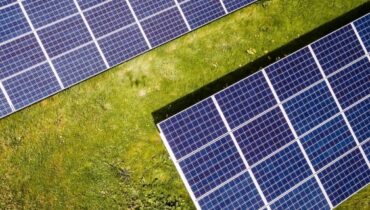Before purchasing a solar system for your home, it’s essential to understand the basics of solar power. Solar power systems work by converting sunlight into electricity, which can then be used to power your home. The main components of a solar system include solar panels, inverters, and batteries (if you plan to store excess energy).
Table of Contents
Assess Your Energy Needs
The first step in buying a solar system for your home is to assess your energy needs. You can do this by analyzing your electricity bills to determine your average daily and monthly energy consumption. By doing so, you can estimate the size of the solar system required to meet your energy needs.
Choosing the Right Solar Panels
When it comes to solar panels, you’ll want to consider factors such as the panel’s efficiency, durability, and warranty. You can choose between monocrystalline, polycrystalline, and thin-film solar panels, each with its own set of advantages and disadvantages.
Selecting the Right Inverter
Inverters are an essential component of your solar system, as they convert the direct current (DC) generated by the solar panels into alternating current (AC) that can be used to power your home. When choosing an inverter, consider factors such as efficiency, warranty, and the number of MPPT (Maximum Power Point Tracking) inputs.
Adding Battery Storage
If you plan to store excess energy generated by your solar system, you’ll need to add battery storage. There are various types of batteries available, including lead-acid and lithium-ion batteries. Factors to consider when choosing a battery include its capacity, lifespan, and warranty.
Finding a Reputable Solar Installer
Once you’ve assessed your energy needs and selected the right components for your solar system, it’s time to find a reputable solar installer. Look for installers who are licensed, insured, and experienced in installing solar systems. You can also check for customer reviews and ratings to ensure that you’re choosing a reliable installer.
Financing Your Solar System
Finally, you’ll need to consider how to finance your solar system. There are various financing options available, including solar loans, leases, and power purchase agreements (PPAs). Consider the pros and cons of each option and choose the one that makes the most sense for your financial situation.
Conclusion:
Investing in a solar system for your home can be a smart decision that helps you save money on your electricity bills while reducing your carbon footprint. By understanding the basics of solar power, assessing your energy needs, selecting the right components, finding a reputable installer, and choosing the right financing option, you can purchase a solar system that meets your needs and helps you achieve your sustainability goals.

